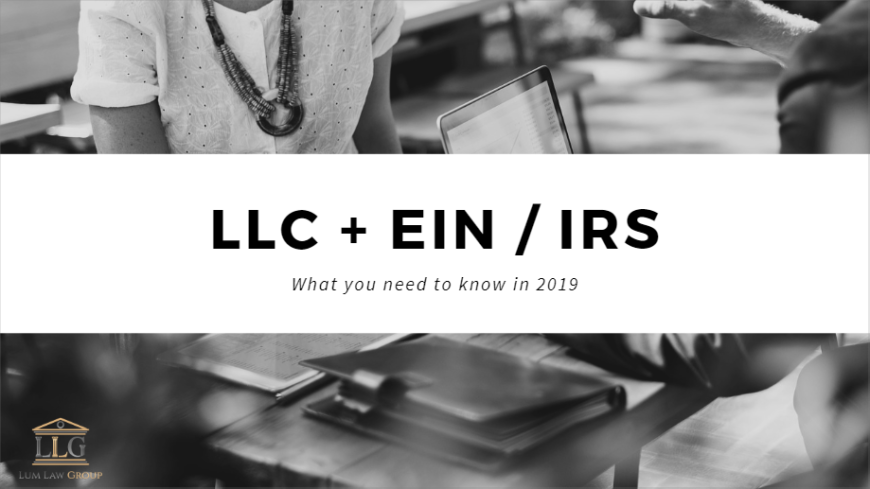What You Need To Know About Limited Liability Companies (LLC) and Employer Identification Numbers (EIN)
In December 2017, the Internal Revenue Service (IRS) introduced updates regarding the issuance of Employer Identification Numbers (EIN), or Tax Identification Number (TIN), to Limited Liability Companies (LLC). The rule went into effect in January 2018, however, since the IRS typically offers taxpayers a grace period to transition to the new regulation, the IRS will begin enforcing said changes in May 2019. In this article, we will explain the upcoming changes and how they may affect your application for an EIN.
Husband and Wife Owned LLC
By default, the IRS treats Single-member LLCs as disregarded entities. This means your single-member LLC will be taxed as a sole-proprietorship.
In California, and other community property states, the IRS considers a husband and wife “partnership” a single-member LLC, or disregarded entity. This means that a husband and wife LLC “are not eligible to be qualified joint ventures“.
LLCs formed by husband and wife in non-community property states should apply for an EIN as a partnership.
Single-Member LLC with No Employees
Since a single-member LLC is tied to your social security number, the LLC does not require an EIN. The exception is if you have employees or if you are required to pay excise taxes.
To file taxes for your single-member LLC, you must use your Social Security Number (SSN) or TIN, and file a Schedule C, Profit and Loss from Business, with your Form 1040, Individual Tax Return.
To fill out a Form W4, Employee’s Withholding Certificate, or Form W9, Request for Taxpayer Identification Number and Certification, for your LLC, you can also use your individual SSN or TIN.
LLCs and Responsible Party
The responsible party in an EIN application is not just the person who signs the application. Rather, the Responsible Party is the person who can make changes to the entity with the IRS, and the person the IRS contacts regarding matters related to the EIN or LLC.
While the Responsible Party should be the person who has control over the LLC and its assets, it does not have to be the only person who has that power. It is important to know that you can only select one Responsible Party for the purposes of federal taxation. You can change the responsible party of an EIN using Form 8822-B, Change of Address or Responsible Party for Business Entities.
If you are forming a single-member LLC, you must be the Responsible Party for that EIN. You would include your social security number on the Form SS-4, Application for Employer Identification Number, and check box “Other” while writing in “Disregarded Entity”.
If you are forming a multi-member LLC, you must choose a member of that LLC to be the Responsible Party. Since multi-member LLCs are taxed as partnerships by default (Form 1065), the Responsible Party should be a “partner” in the partnership.
Who Can Be a Responsible Party?
Where previously you could form an LLC using another entity and EIN as the Responsible Party, now you can no longer do so. The Responsible Party must be a “natural person”, not a corporation or any other entity.
The new requirement means that any LLC seeking an EIN must apply using an SSN or Individual Taxpayer Identification Number (ITIN) belonging to the Responsible Party.
If the LLC is owned by another entity, e.g., “parent company”, the Responsible Party of the parent company entity must be listed as the Responsible Party of the LLC in the EIN application.
Foreign Individuals with no ITIN or SSN
If you’re not a U.S. citizen or Permanent Resident and have no ITIN or the need for an ITIN, you can still apply for an EIN for your LLC. When you fill out the SS-4 application, be sure to write “Foreign” on the line requesting a TIN.
Do you have further questions on obtaining an EIN for your LLC? Contact us for additional assistance.


